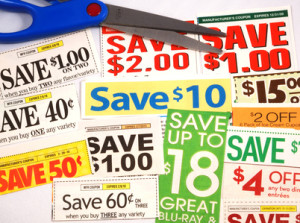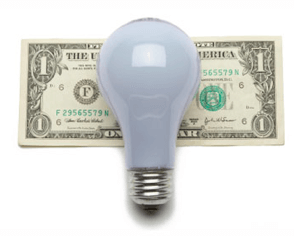
But, you don’t have to go to extreme measures to make coupons, coupon codes, and deals help you and your family save money with coupons. You can save a ton! Now is the time with holiday shopping, Black Friday, Cyber Monday, and the like to score some great savings this season!
You do not have to go to such extremes to save money for you and your family. You don’t have to visit 5 grocery stores a week. And, you don’t need a pantry the size of the Grand Canyon and bulk deals to make couponing worthwhile for you.
Coupons aren’t just for groceries. Now is the time to save a boatload of money with Black Friday and Cyber Monday literally right around the corner.
According to NCS Marketing, a media and marketing services company, almost 80% of consumers regularly shop with coupons. Three billion coupons were redeemed in 2012, and consumers received a collective $800 million in discounts.
Save Money With Coupons This Holiday Season

We talk about Black Friday, Cyber Monday, Christmas sales, and much more. We also discuss how consumers can get the most bang for their buck through coupons, coupon codes, and so much more.
Scott let all of his secrets slip out in this interview! You won’t want to miss what Scott has to say about this holiday season and the deals consumers are going to score! Also find out the super cool and unique way that he saved hundreds of dollars on furniture with this incredible coupon secret that I have never heard of before.
This one secret alone on how to save money with coupons is insane, and I’m saving this best tip just for the podcast. You’ll have to listen to find out how he saved hundreds! I did want to leave you with four other incredible tips on how to save money with coupons that are in the podcast too!
Scott Elling of CouponPal & 4 Great Tips To Save Money With Coupons!
Tip #1 – Has something you bought at full price just gone on sale or have a killer coupon? Ask for a refund of the difference. Many stores will honor coupons even after you have purchased the item.
Tip #2 – Don’t forget about price matching! Price matching can be a great way to save money with coupons, and it is something that we often forget to ask about while in a store. Find out in the podcast exactly how Scott does his own price matching combined with a little showrooming!
Like these tips? Share them with your friends with a tweet….
Four incredible tips on how to save the most money using coupons this holiday season! via @MoneyQandA and @CouponPal http://goo.gl/zVyP04 (Click to Tweet!)

 The stock market is humming along lately, but this is of course despite a few recent macro level economic hiccups. Thanks to the federal government and the shutdown the economy has continued to remain sluggish.
The stock market is humming along lately, but this is of course despite a few recent macro level economic hiccups. Thanks to the federal government and the shutdown the economy has continued to remain sluggish. When you think of an ‘office’ you may think of a large expanse of a commercial building, solely used to go about daily, working life. But that’s not all that an office or business has to be – in fact, more and more people are choosing to create an office in their home, where they can build their business and travel along the self-employed path.
When you think of an ‘office’ you may think of a large expanse of a commercial building, solely used to go about daily, working life. But that’s not all that an office or business has to be – in fact, more and more people are choosing to create an office in their home, where they can build their business and travel along the self-employed path.